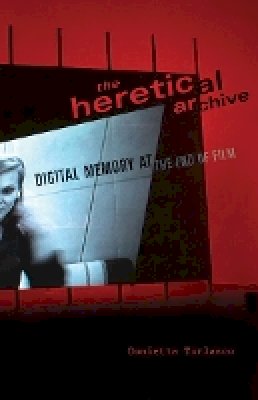
Stock image for illustration purposes only - book cover, edition or condition may vary.
The Heretical Archive: Digital Memory at the End of Film
Domietta Torlasco
€ 33.80
FREE Delivery in Ireland
Description for The Heretical Archive: Digital Memory at the End of Film
Paperback. Num Pages: 160 pages, 25 black & white illustrations. BIC Classification: AFKV; DSA. Category: (G) General (US: Trade). Dimension: 217 x 140 x 11. Weight in Grams: 232.
Read more
The Heretical Archive examines the relationship between memory and creation in contemporary artworks that use digital technology while appropriating film materials. Domietta Torlasco argues that these digital films and multimedia installations radically transform our memory of cinema and our understanding of the archive. Indeed, such works define a notion of archiving not as the passive preservation of audiovisual signs...
Product Details
Format
Paperback
Publication date
2013
Publisher
University of Minnesota Press United States
Number of pages
160
Condition
New
Number of Pages
160
Place of Publication
Minnesota, United States
ISBN
9780816681105
SKU
V9780816681105
Shipping Time
Usually ships in 7 to 11 working days
Ref
99-1
About Domietta Torlasco
Domietta Torlasco is associate professor of French and Italian and comparative literary studies at Northwestern University. She is the creator of the digital film Antigone’s Noir and the author of The Time of the Crime: Phenomenology, Psychoanalysis, Italian Film.
Reviews for The Heretical Archive: Digital Memory at the End of Film
"Inspired by other scholars who have brought the phenomenological method to cinema, Domietta Torlasco writes beautifully of her own encounters with films and images, drawing the reader into her own vision as she elucidates its implication in a constellation of deep thought. The book’s insights are as fresh and profound as its writing, in other words: at its best moments,...
Read more